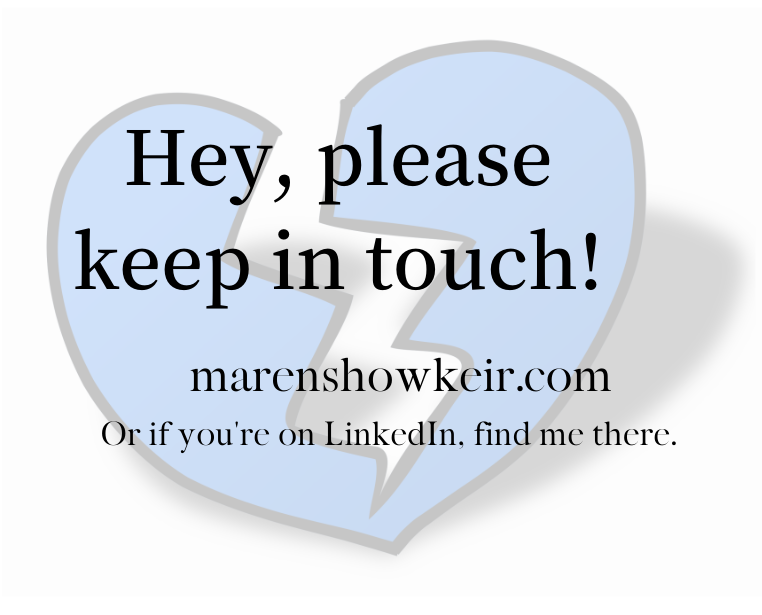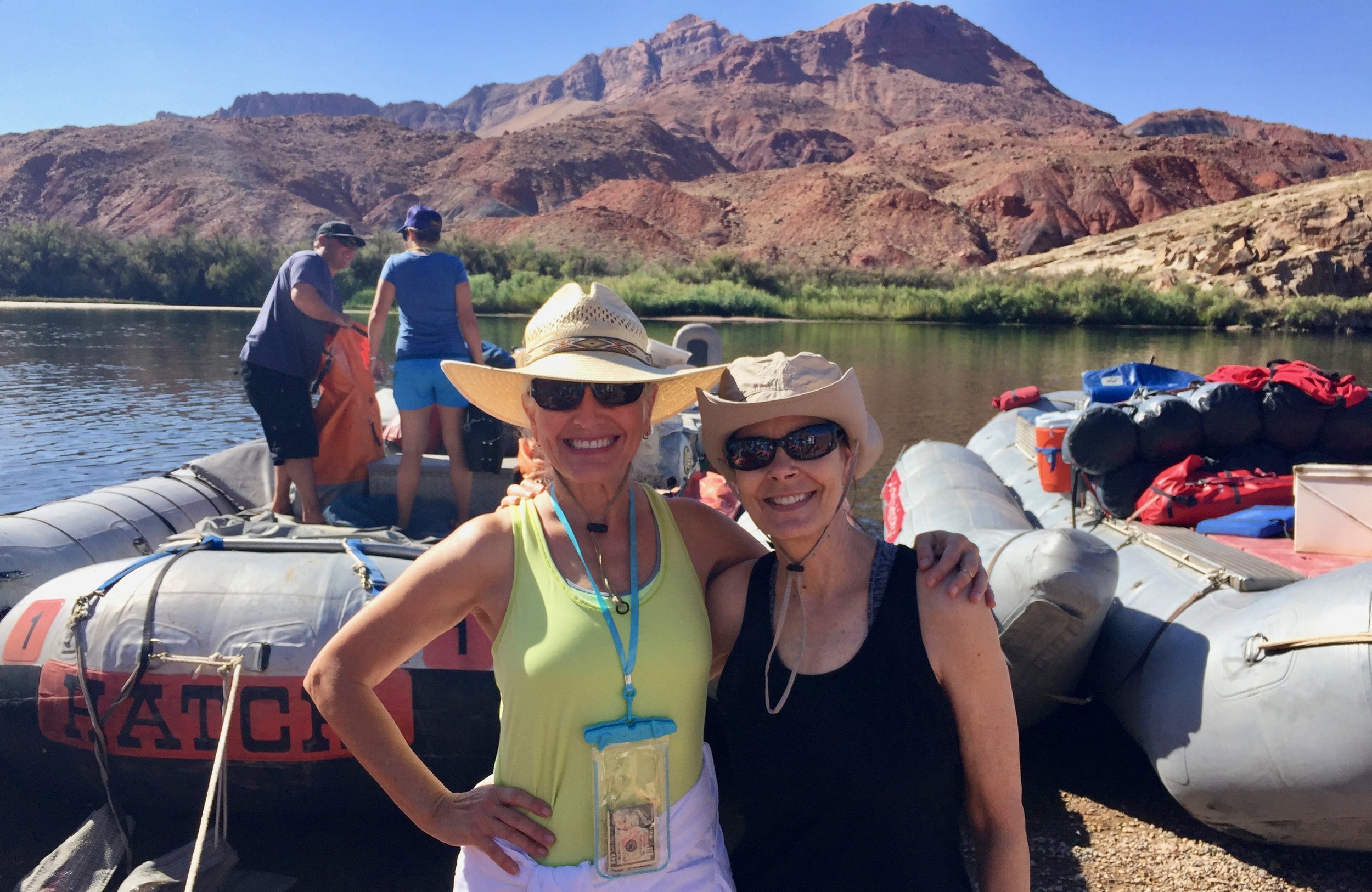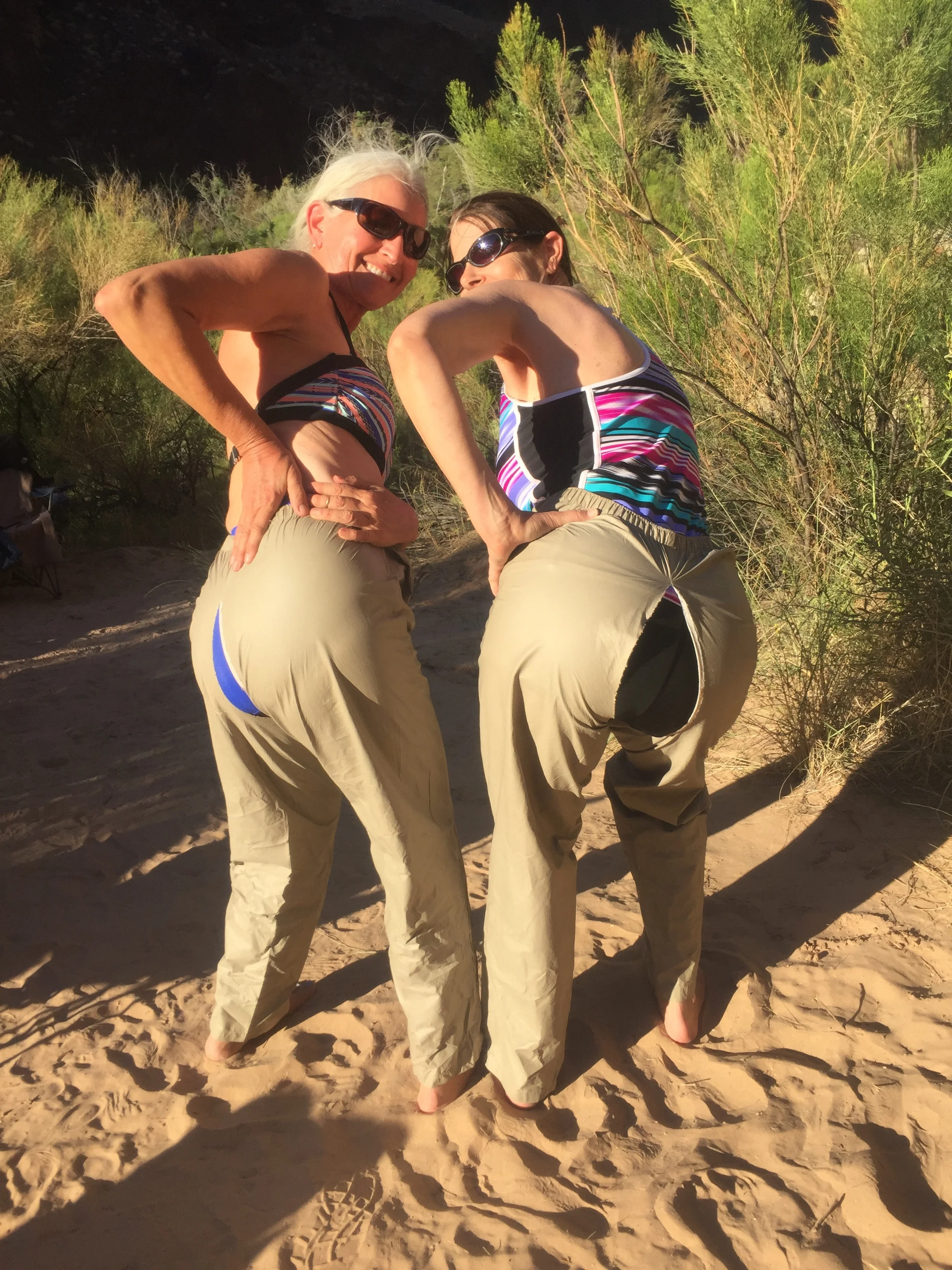My relationship with social media has felt uneasy for a long time.
My son has nagged me for YEARS to get off these platforms. He is one of the best critical thinkers I know. (I say this with pride now, but trust me, this was not so endearing when he was a kid.) He has deep expertise in this area, so I believed everything he told me about the ways I was being used and manipulated on social media. I had a sense of the invisible, dangerous repercussions of what it has created and is creating.
“Mom, when are you going to get off social media?” He asked this question with this exasperation almost every time I spoke to him. And like any good addict, I would defend all the delicious things I love about something that I suspected, deep down, was not so good for me.
Even with all his information, I’d resisted. It felt too hard. I’ve tried Facebook fasts and scaled-back participation — I barely use Twitter and Instagram. But I have been afraid to permanently cut the cord. Honestly, I still am. Partly this is out of FOMO (fear of missing out), but mostly, it’s because I am loathe to give up the meaningful connections and community I have found on social media. With a few exceptions, I’ve met in real life every friend I have on Facebook. And much of my family is there.
I clung to what I was getting out of it, and that felt like a lot. I have discovered and renewed relationships. I’ve learned of my peeps’ triumphs and tragedies, about new lives who have entered the world and old souls who have left it. The love and support I’ve received in my own difficult times has been abundant. I’ve been awed and moved by my friends’ knowledge, wisdom, and humor. And their willingness to help. My intellect and thinking has been stimulated and changed by great, thought-provoking, and humorous content that I likely wouldn’t have found on my own. I have engaged in spirited debate and found like-minded souls in many of the groups I joined. Lots of fun snark fests. Learning opportunities. Thanks to my diverse, interesting, adventurous friends, I’ve traveled the world vicariously. And the birthdays!
I mean, that stuff feels really good! Why would I race to give it all up?
While this decision to leave social media has been a long time coming, I finally was persuaded to act after reading a book by Jaron Lanier: 10 Arguments for Deleting Your Social Media Accounts Right Now. A summary of his arguments can be found at the end of this blog. If you’re interested, read the book, and make up your own mind. I hope you will.
In this easy read, 150 pages or so, Lanier builds a compelling case for the ways social media companies are wreaking serious, dangerous havoc on the world, and how the people running them are enriching themselves by refusing to pay the people who make them rich.
That would be us.
Lanier should know — he’s one of the insider Silicon Valley billionaires who has been hands-on in social media..
I’ve long been alarmed by the scarcity of thoughtful conversation and critical thinking and how it’s bled over into public discourse. What I didn’t fully understand before I read the book is that the SM structure actually encourages and supports negativity and conflict. Its algorithms purposely make viral the lies, distortions, nastiness, and ginned-up outrage. Who needs context or complexity when you get such great reward for pissing people off? Who needs love and compassion when it’s so satisfying to spread hate and demonize the people you disagree with?
I’ve always been bothered that Facebook’s algorithms are deciding what I get to see, but I never realized to what extent we are being manipulated. All those likes, loves, those angry and sad emojis?They trigger those algorithms, computer code completely lacking in mind, heart, or soul. Bots and a lot of invisible bad actors have great power over what you get to see. You can’t outsmart them. They constantly scan for ways to reinforce your biases, manipulate your behavior, and keep you hooked.
Don’t even get me started on what social media is doing to our political systems— in this country and globally. What Lanier reveals about how social media supports authoritarianism throughout the world is probably the most frightening thing I have read in a long time. In this new world, he argues, it’s entirely possible the arc of history will NOT bend toward justice. The day I wrote this blog, both Twitter and Facebook — the companies, not people using their platforms — offered evidence that a group backed by the Kremlin is again meddling in the U.S. presidential election.
Finally, in spite of my commitment to live an intentional life, I often find myself behaving on social media in ways that don’t align with who I want to be in the world. (See argument No. 3 below.)
Reading Lanier’s book made me realize that this “free” social community that I have valued highly comes with calamitous cost. His book made clear that I could not, in good conscience, continue to be complicit in shaping a world that I don’t even want to live in. I can no longer justify or defend my participation there.
I have no illusions that my leaving will make a difference. My absence won’t crumble the empire. Even the author, in the book’s afterword, admits he knows his arguments will likely fail to land. And I totally get that for many people, leaving isn't a realistic option. It’s how people do business these days.
Even so, in a few days, I’ll permanently delete my profiles on Facebook, Instagram, and Twitter. My Facebook account, where I spent the most time, has been deactivated for more than a week. I took this first step to see if I was really ready to break the cycle of codependency. I wanted to experience the feelings of withdrawal. The separation also has been a self-imposed test to see whether I can live the courage of my convictions.
I feel clear about this decision, and this will be my last Facebook post. It will remain here until the download of my Facebook data is delivered. I'd love to hear comments or feedback about what I’ve said or what I’m doing, but please post them on the Medium site or the blog on my website. Otherwise, they will disappear when my account does.
Also, while I’m not invested in anyone sharing this post, should you wish to, please create a new post and copy the Medium or marenshowkeir.com blog link. Otherwise, people won’t be able to see it in a few days.
Breaking up really is hard to do. And it’s not you, it’s social media. I am feeling super vulnerable about this. It is painful — but it also feels right. I’ll be back in a heartbeat if something better comes along. But for now, I’m out.
Please keep in touch. I am easy to find. I’ll continue using my LinkedIn account, and my contact information is on my website: marenshowkeir.com. If you don’t have my mobile number and want it, please shoot me an email.
I was going to write about how much I’ll miss you, but I hope that won’t be true. I fully intend to find ways to stay connected. What that looks like I’m still not sure, but I am committed to figuring it out. In the meantime, this is my Facebook farewell, with sincere thanks for the good memories.
A summary of Jaron Lanier’s arguments:
(Emphases are mine)
1: You are losing your free will
2: It is the most finely targeted way to resist the insanity of our times
3: Social media encourages you to be an asshole
4: It is undermining the truth
5: It is making what you say meaningless
6: Social media is destroying your capacity for empathy
7: It is also making you unhappy
8: Social media doesn’t want you to have economic dignity
9: It is making politics impossible
10: Social media hates your soul
And one more, added by me:
11: Social media (specifically Twitter) has ruined the presidency














